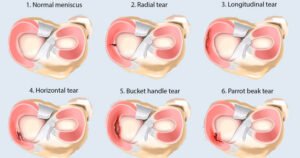Passing Gas After Abdominal or Other Types of Surgery
Why Passing Gas is a Sign of Recovery After Surgery
After undergoing surgery, particularly abdominal procedures, one of the most significant indicators of recovery is the ability to pass gas. Failure to pass gas can signal a condition called postoperative ileus (POI), where the intestines are temporarily unable to function normally. POI can develop after surgeries involving the abdomen or other parts of the body, potentially leading to serious complications like infections, malnutrition, or electrolyte imbalances.
In this article, we’ll explore the reasons why passing gas is crucial after surgery, the potential risks of not passing gas, and what it means if you are unable to do so.
The Role of Gas in Post-Surgical Recovery
During surgery, anesthesia is often used to keep patients comfortable. While this medication is essential, it can also slow down or temporarily halt the movement of food and waste through the digestive system. This delay in gastric motility is commonly referred to as postoperative ileus (POI).
POI typically results in a slowdown in the function of the intestines, meaning it takes longer for your body to recover from anesthesia. In some cases, the recovery time can be minimal, but in more severe cases, medical intervention may be needed. Passing gas is a clear sign that your digestive system is “waking up” after surgery, and it often indicates that your intestines are starting to function normally again.
What to Expect and When Gas Movement Indicates Progress
If you’ve undergone bowel preparation before surgery, you may notice that gas is passed before stool, which is a good sign. Gas moving through your system indicates that the intestines are recovering, even if a bowel movement is not yet possible. In some outpatient procedures, medical staff may even ask you to pass gas before you are allowed to go home to ensure there are no complications.
Passing gas not only shows your digestive system is functioning but may also be an essential part of the discharge criteria for some surgeries.
What Happens if Gas Movement is Delayed? Symptoms to Watch For
A delay in gastric motility is usually short-lived, but in more severe cases, it can lead to complications requiring extended hospital stays. Watch for the following symptoms, which may indicate a more serious problem:
-
Nausea
-
Bloating
-
Vomiting
-
Abdominal tenderness or pain
-
Delayed or absent passing of gas or stool
While these symptoms are common after surgery, they could also be indicative of other conditions, making it crucial to discuss any of these signs with your healthcare provider promptly.
Why Can’t You Pass Gas After Surgery? Possible Causes of POI
Several factors contribute to the development of postoperative ileus. While there isn’t one definitive cause, some common factors include:
-
Abdominal Surgery: Surgery that involves manipulation of the intestines or nearby organs can trigger an immune response that slows down intestinal motility.
-
Disruption to the Nervous System: The nervous system regulates the function of the intestines. After surgery, the sympathetic nervous system (SNS), which slows down gut movement, may become overly active. This can delay recovery and prevent gas from passing normally.
-
Electrolyte Imbalance: Surgery, fluids, and medications can cause an imbalance in electrolytes like potassium and calcium, which are essential for normal digestive function.
-
Medications: Opioid painkillers, commonly prescribed after surgery, can slow bowel movement and increase the likelihood of POI.
How to Prevent Postoperative Ileus (POI)
While POI isn’t always avoidable, there are measures to reduce the risk:
-
Epidural Anesthesia: Patients who receive anesthesia through an epidural typically recover faster from POI compared to those who receive general anesthesia.
-
Less Invasive Surgery: Minimally invasive surgeries like laparoscopy, which require smaller incisions, tend to cause less disruption to the body and are linked to a reduced risk of POI.
-
Chewing Gum and Drinking Coffee: Postoperative studies suggest that chewing gum or drinking coffee after surgery can stimulate the digestive system, helping gas to pass more easily.
-
Shortened Fasting Times: Reducing preoperative fasting times can support better post-surgical recovery.
-
Early Nutrition and Movement: Encouraging light food intake and walking as soon as possible after surgery can significantly speed up recovery.
Conclusion: The Significance of Passing Gas After Surgery
In conclusion, passing gas after surgery is an essential sign of your recovery. If you are unable to pass gas, it could indicate a postoperative ileus (POI), which can delay the normal function of your digestive system. Various factors, such as the type of surgery, medications, and electrolyte levels, contribute to POI. However, steps can be taken to prevent or reduce the risk of POI, including faster recovery practices like walking and eating soon after surgery.
FAQs: Why Is Passing Gas Important After Surgery?
We’re working on detailed responses to answer this common question—stay tuned for updates!
Expert Tips to Support Recovery:
-
Use seasonal ingredients to make your meals interesting and varied.
-
Save time with prep shortcuts to make meals easier and faster to prepare.
-
Adapt recipes to fit dietary restrictions with simple substitutions.
Key Takeaways
-
Focus on a balanced diet and proper hydration before and after surgery.
-
Recovery activities such as walking can help speed up the return to normal digestive function.
-
Early gas passage is a good indicator that your intestines are healing properly.
Join Our Community for More Insights
Want more helpful tips like this? Subscribe to our newsletter for regular updates on health recovery, nutrition tips, and much more!






